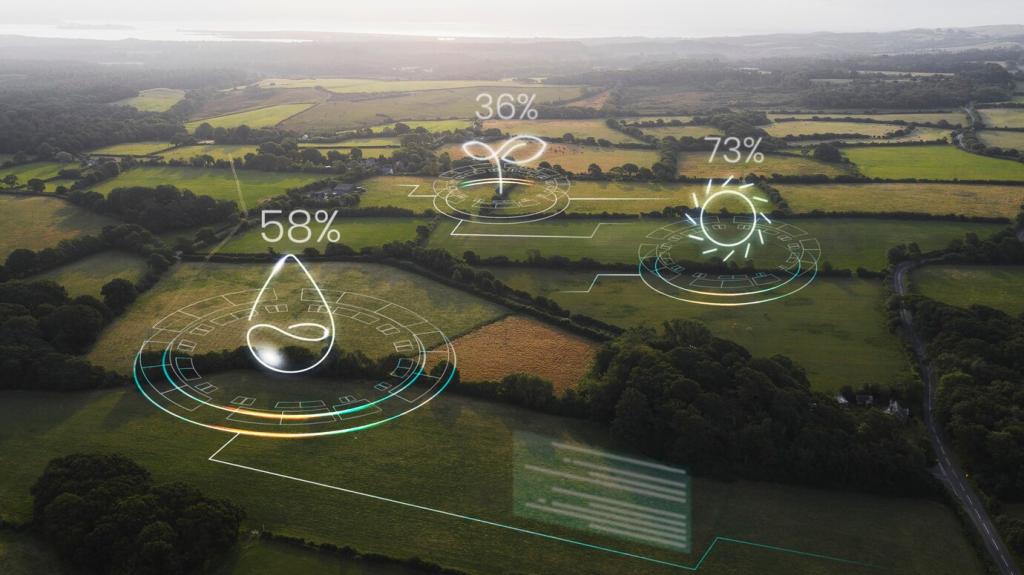Innovative green roofing represents a revolutionary shift in urban architecture, transforming previously underutilized rooftops into thriving ecological spaces. Cities worldwide are adopting green roofs as practical, sustainable solutions to address environmental challenges while enhancing the visual and environmental quality of urban life. Employing progressive materials and advanced designs, green roofs are becoming integral to modern dwellings, contributing to energy efficiency, biodiversity, wellness, and even urban agriculture. This page explores the latest and most impactful green roofing concepts that elevate not just buildings, but entire communities.
Modular Green Roof Panels
The introduction of modular green roof panels has significantly reduced installation time and complexity in urban settings. These prefabricated units are designed for rapid assembly and flexibility, accommodating everything from sedum mats to full-bodied wildflower meadows. Modular panels allow for easy replacement and maintenance, ensuring that urban dwellers can manage their green rooftops with minimal hassle. Their structured design also means they can be tailored to specific environmental goals, such as improved stormwater management or native habitat creation, without requiring a deep knowledge of horticulture.
Lightweight Substrate Technologies
Recent innovations in lightweight substrate materials have made it feasible to install green roofs on a wider range of structures, including older buildings not originally engineered for high load capacities. By combining recycled materials, natural fibers, and engineered soil mixes, these substrates provide excellent root support and water retention while greatly reducing overall roof weight. This breakthrough allows for more widespread adoption of green roofing in dense urban areas, making it possible for many city residents to contribute to urban greening initiatives regardless of their building’s age or structural limitations.
Adaptive Irrigation Solutions
Water efficiency is a key consideration for any urban green roof. Advances in adaptive irrigation systems use weather data, soil sensors, and plant-specific requirements to tailor watering schedules precisely. Such systems not only conserve water but also improve plant health by delivering moisture only when and where needed. This approach is particularly beneficial in cities that experience both drought and heavy rainfall, ensuring that green roofs remain lush, resilient, and resource-smart throughout the changing climate and seasonal fluctuations.

Edible Plant Integration
Integrating fruit, vegetables, and herbs into rooftop gardens is becoming a hallmark of urban green roofing strategies. Carefully selected edible plants are being cultivated on building tops, enabling residents to harvest seasonal crops right where they live. This not only increases access to fresh, healthy produce but also promotes educational opportunities around horticulture and nutrition. Professional designs incorporate companion planting and crop rotation techniques, ensuring both productivity and ecological health on urban roofs throughout the year.

Hydroponic and Aquaponic Rooftop Systems
Hydroponic and aquaponic technologies are transforming the way urban rooftops are used for food production. These soil-free systems are highly efficient, utilizing recycled water and nutrients to grow crops in compact spaces. Urban dwellers benefit from higher yields and the ability to produce food year-round, regardless of soil conditions or limited sunlight. Aquaponic setups introduce an additional layer of sustainability by incorporating fish that provide natural fertilizer, further closing the loop in urban food systems and maximizing the productive potential of green roofs.

Community-Engaged Rooftop Farms
Rooftop farms are no longer just private oases but are becoming hubs for community engagement and learning. Organized initiatives are inviting neighborhoods, schools, and local businesses to participate in rooftop farming projects. These communal spaces enhance social connections and provide education around sustainable food systems, all while improving the urban microclimate. The sense of shared stewardship and collective benefit fosters pride in the community and sets a precedent for cooperative urban greening efforts.

Join our mailing list
